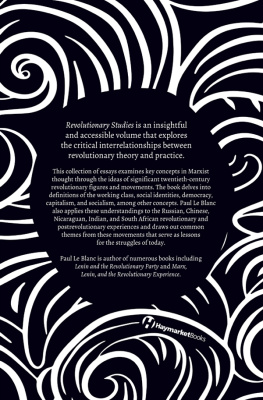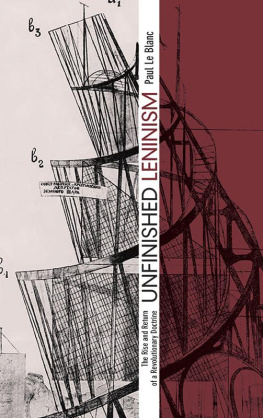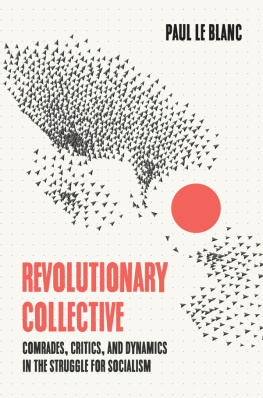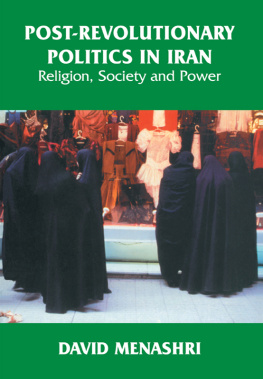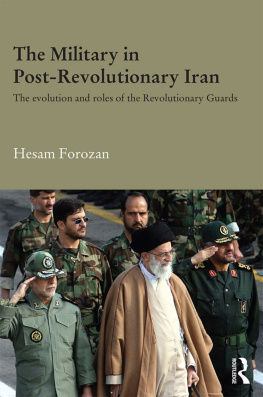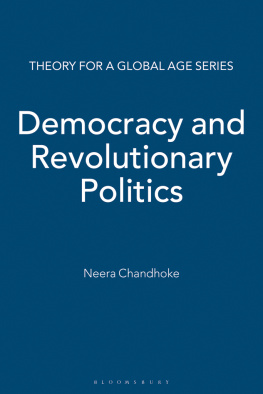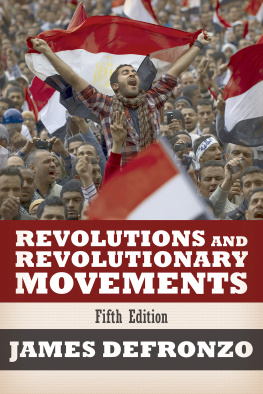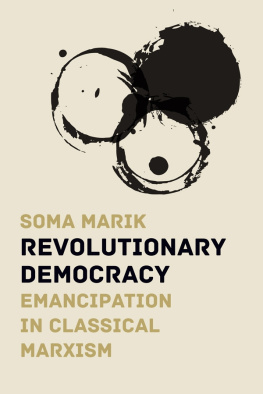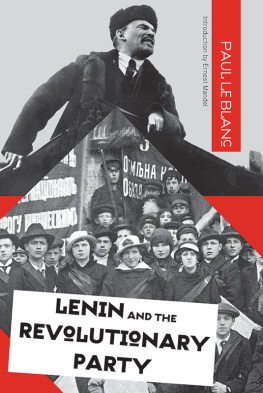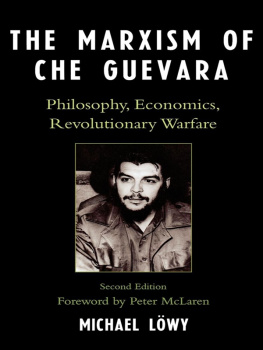Revolutionary Studies
Revolutionary Studies
Essays in Plain Marxism
Paul Le Blanc

2017 Paul Le Blanc
Published in 2017 by
Haymarket Books
P.O. Box 180165
Chicago, IL 60618
773-583-7884
www.haymarketbooks.org
ISBN 978-1-60846-782-2
Trade distribution:
In the US, Consortium Book Sales and Distribution, www.cbsd.com
In Canada, Publishers Group Canada, www.pgcbooks.ca
In the UK, Turnaround Publisher Services, www.turnaround-uk.com
All other countries, Ingram Publisher Services International,
IPS_Intlsales@ingramcontent.com
This book was published with the generous support of Lannan Foundation and Wallace Action Fund.
Cover design by Rachel Cohen.
Library of Congress Cataloging-in-Publication data is available.

Authors Note
The previously published essays in this volume have preserved their original citation format. In lieu of endnotes,
Introduction
For some people, the word revolution is frightening, having the connotation of violence and chaos. For others, it is inspiring, having the connotation of liberation from both tyranny and oppression. It can best be understood as a popular insurgencymass action on the part of large numbers of people, with the support of even larger numbers of peopleto overturn existing and oppressive power structures, creating the basis for different social relationships and different structures of power.
I would argue that violence is not conceptually essential to what a revolution is. The fact remains, however, that most revolutions have involved some degree of violencewhich was even the case in relatively nonviolent revolutions led by Mohandas Gandhi in India and Nelson Mandela in South Africa. It is especially the case that efforts at counterrevolution, and the often consequent eruption of civil war, can engulf a society in terrible violence. Both the American Revolution of 177583 and the even bloodier Second American Revolution (the Civil War, 186165) have amply demonstrated this truth. It is documented, for example, in Ray Raphaels Peoples History of the American Revolution and David Williamss Peoples History of the Civil War. Arno Mayer demonstrates the same in his magisterial study The Furies: Violence and Terror in the French and Russian Revolutions. At the core of revolutions meaning, however, is not violence but something more fundamental. Whether one is frightened or inspired by revolution, it is important to understand this profound and complex phenomenon.
Revolutions generally involve peoples quest for a better world that will allow the realization of the interrelated and interactive triad that defines their humanityfreedom (self-determination), creative labor, genuine community. Revolutions are amazing events with which serious students of society and of politics must engage in order to comprehend adequately the social and political realities they are studying. Revolutions are uncommon happenings, occurring when masses of common people force their way onto the political stage, overturning existing power relations, clearing the way for others. Examining this throws light on how history works. At the same time, it is impossible to examine such history without having the intellectual meanstheoryto help sort through the complex swirl of causes and effects. Theory and history are the categories around which the present volume is organized.
The ten essays in this volume were written between 2005 and 2016, and most were published or disseminated previously. They are basically divided into two sections, one focused on questions of revolutionary theory, the other focused on revolutionary history.
The first five essays deal with my take on various theoretical aspects of the orientation that has guided many of us seeking to understand, and sometimes to change, the social, economic, and political realitiesand the historythat we have been part of. The first essay lays out an approach to Marxism which may strike some as too plain and simple but which has guided my own intellectual and political efforts. The second employs Trotskys theory of uneven and combined development to sketch out an understanding of the shape and dynamics of European history down through the end of the twentieth century. The third maps out a conceptualization I developed back in the 1980s and 90sthat of a labor-radical subculture, which I believe helps explain some of the history of the working class and labor movement, and which I think can be useful in future struggles. This is followed by an essay on class and identities, both analytical building blocks for those who want to understand reality in ways that can enable them to change it. The fifth essay in this theory section deals with two of my deepest prejudices(1) the belief in the possibility and desirability of rule by the people, democracy, and (2) the belief that this is at the heart of the socialism to which I have committed so much of my life. These are not, however, blind prejudices, and their logic and rightnessI hopewill shine through in what I have written.
The history section of the book was originally more expansive than what is presented here. A reproduction of an article on the momentous Russian Revolutions of 1917, originally composed for the now defunct Encarta Encyclopedia, has been dropped in deference to a very substantial volume of mine also being published by Haymarket Books in 2017October Song. The dropped essay can be found as The Russian Revolutions of 1917 in the online journal Links: International Journal of Socialist Renewal (http://links.org.au/russian-revolutions-1917-paul-le-blanc). I urge readers who are interested in the themes explored in this volume to see how I attempt to interweave them in the older article and newer book on revolutionary Russia. Retained here, however, is another essay on why the revolutionary-democratic regime turned into its opposite, to which I have added an additional piece on the heroic Russian revolutionaries who struggled against the bureaucratic-authoritarian betrayal of their revolution. This is followed by reflections on two revolutions in Latin America, the Cuban and the Nicaraguan. For the final chapter, my attention turns to South Africa and the complex evolution of the struggle that brought down the racist apartheid regime (while failing to solve other key problems). Readers might also be interested in another essay considered for this volume but not included, dealing with the fascinating and complex revolutionary struggle in Indiawhich can be found as India Yesterday: Development and Revolution (the first part of a three-part series on Indias past, present, and future), published in the online journal Links: International Journal of Socialist Renewal in 2015 (http://links.org.au/node/4584).
These revolutionary developments call out for a comparative analysis, which perhaps readers will be inspired to initiate on their own, noting common themes and revealing differences. A comparative approach to revolutionsexamining similarities and differences, looking for patterns and breaks in patternscan shed light on what happened (and what might have happened but didnt) in each country. By giving us greater perspective on each revolution, the comparative approach can also give us greater perspective on revolution in general. Such an orientation in regard to the past may even be helpful in orienting us in the present and future, assuming that we dont allow precedents to blind us to possibilities.
Next page
